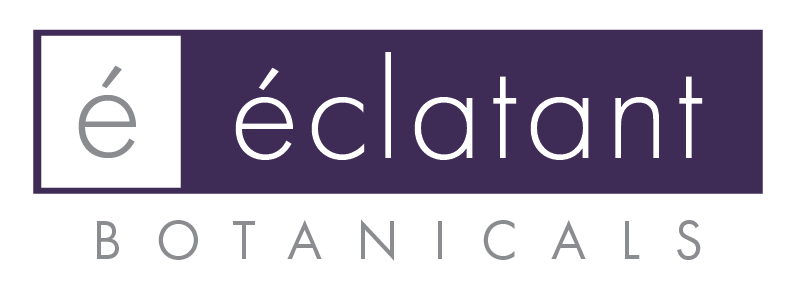Uncover the Scary Secret Behind Your Makeup

When you go into a drugstore or beauty store what do you see? Rows and rows of makeup products that catch your eye. From shimmering eye shadows to eye catching lipsticks and correcting concealers, there's so much to choose from. Cost, overall look, or brand name could all be a factor in your cosmetic decision-making process, but what about chemicals? Are they as big of a factor when it comes to purchasing your makeup?
While it’s customary for us to buy name brand makeup, it’s important to note that many cosmetics companies have come under fire in recent years. From mislabeling to including potentially dangerous chemicals, big box names aren’t always the best for our skin. Although the name may be flattering, the ingredients may lead to worsening skin. Protect your skin from harsh chemicals and be aware of what you're putting on your skin, as it can often be absorbed into your bloodstream. In this article, we’re going to outline six dangerous chemicals that still find their way into mainstream makeup.
1. AsbestosYou’ve probably seen commercials encouraging people exposed to asbestos to contact a lawyer for negligence. Not only is asbestos harmful to the environment, but it wreaks havoc on the lungs. In many cases, sustained exposure can lead to long-term respiratory disease. While asbestos isn’t a direct ingredient in makeup, it is commonly found near talc deposits. While it’s a known contaminant, talc and asbestos are oftentimes mined together. Together, they go into cosmetics to try and make products feel smoother, but the damage it can cause to the skin and your lungs is serious.
2. Lead
Lead has been under scrutiny for years. In fact, lead paint has been banned because children who consume flakes can become extremely sick. Lead is harmful to the entire body, with worse impacts on the nervous and cardiovascular systems. In children, lead can cause permanent brain damage. Still, lead is found as a by-product and contaminant in cosmetics, predominantly lotions, lipsticks, and eye makeup. If it's not safe for children, why would you put it on your skin?
3. PFAS (per-and polyfluoroalkyl substances)
Per-and polyfluoroalkyl substances (PFAS) have been shown to be particularly harmful to the development of unborn babies, yet they are still found in cosmetics you see on the shelf everyday. In addition, PFAS have been connected with cancer and hormone disruption. PFAS are found primarily in concealer and eyeliner products. Whether you're pregnant or not, PFAS should be avoided to help protect yourself.
4. Carbon Black
Carbon black is quite literally a by-product of the combustion of tars, and it’s found in eyeliner, lipstick, mascara, and more. The problem is that it’s a carcinogenic, and it can irritate the lungs, nose, throat, and eyes. While it’s often a choice for pigmentation because of its rich hues and affordability to cosmetics companies, it’s a terrible choice for your skin's health and your overall health.
5. Formaldehyde
Formaldehyde was once an extremely common preservative, but research and many medical lawsuits eventually led to the dwindling use of formaldehyde in everyday products. Despite of its controversy and known harm, it’s found in many cosmetics. It’s used to prevent bacteria growth, and while that’s important, the downsides of formaldehyde can’t be ignored. Potential risks include cancer and irritation to the respiratory tract and eyes. Today, formaldehyde is found in nail polish, hair gels, eyelash glue, lotions, deodorants, and other products.
6. Mercury
It’s important to note that the FDA banned mercury for use in most of the cosmetics we find today, but it can still be found in trace amounts in some products. For instance, mercury is a known skin lightener and is found in eye-area products. Which means you could be putting mercury on the sensitive skin around your eyes. Mercury, in larger amounts, can be corrosive to the skin and other tissues, including the GI tract, and it can even cause kidney failure if ingested. In smaller amounts, mercury is still connected to nervous system problems and skin damage, and it can be harmful to the development of unborn babies, so pregnant woman need to be even more careful.
While these chemicals have been banned in the use of cosmetics and other products in other countries around the world, we still see them in cosmetics in the U.S. This further drives us to want to create pure skin care that you can trust. You should be able to feel and look great without worrying about what ingredients are in your skin care products.
Read skincare and cosmetic labels carefully, but most importantly, try switching to all-natural, organic skincare and cosmetic products to avoid a chemical-filled complexion.
About éclatant botanicals skin care for women and luisant botanicals for men
éclatant botanicals and luisant botanicals are 100% clean, pure and organic and are made in the United States. éclatant provides a combination of organic skin saviors that will enhance and rejuvenate stressed skin by immersing it with the purest and most hydrating nutrients to brighten and beautify your skin tone.
Natural, organic and healthy for your skin, éclatant and luisant botanicals is infused with vitamins, minerals and essential oils that leave your skin feeling beautiful, every day. Perfect for men and women, with all skin types and ages, our botanical line includes face creams, serums, face washes, and body creams that will revitalize your skin, illuminate, nourish and decrease signs of aging.
If want the cleanest, healthiest, and most natural products for your skin, then we invite you to explore our full line of botanical skin care for both men and women alike. For more information, visit www.eclatantbotanicals.com today.
Stay healthy and stay beautiful.

Leave a comment